Witold Pilecki’s story is one of courage and sacrifice, and a meeting room of the European Parliament has just been inaugurated with his name, 75 years after being executed by Stalin. President of the Parliament Roberta Metsola was present together with different MEPs from different groups, but especially from ECR (Anna Fotyga), as that is the room where they do their group meetings.
Witold Pilecki meeting room inaugurated at the European Parliament
On May 31st, a room has been inaugurated with name at the European Parliament. A ceremony Has been be held to name the ECR Group meeting room, SPAAK 1A002, in honour of Witold PILECKI, a Polish World War II officer, intelligence agent and resistance fighter who fiercely resisted both Nazism and Communism and whose opposition to totalitarian regimes represents the core values underpinning European integration. Roberta Metsola, EP President attended the ceremony alongside ECR Co-Chairmen Ryszard LEGUTKO, and Mr Marek OSTROWSKI, nephew of Witold PILECKI.
Metsola said during the ceremony:
Today we are here to honour a hero of the 20th century, Witold PILECKI. As a true example of perseverance, he played a pivotal role in shaping Poland’s future. He stood up to totalitarianism as a soldier who fought Nazism, distinguishing himself during the Warsaw uprising against the onslaught of German soldiers. He survived the horrors of Auschwitz. He documented what he saw and what he learned. He resisted the Soviet occupation and withstood horrific torture at the hands of the communist authorities. They thought that by executing him, they could extinguish his light.

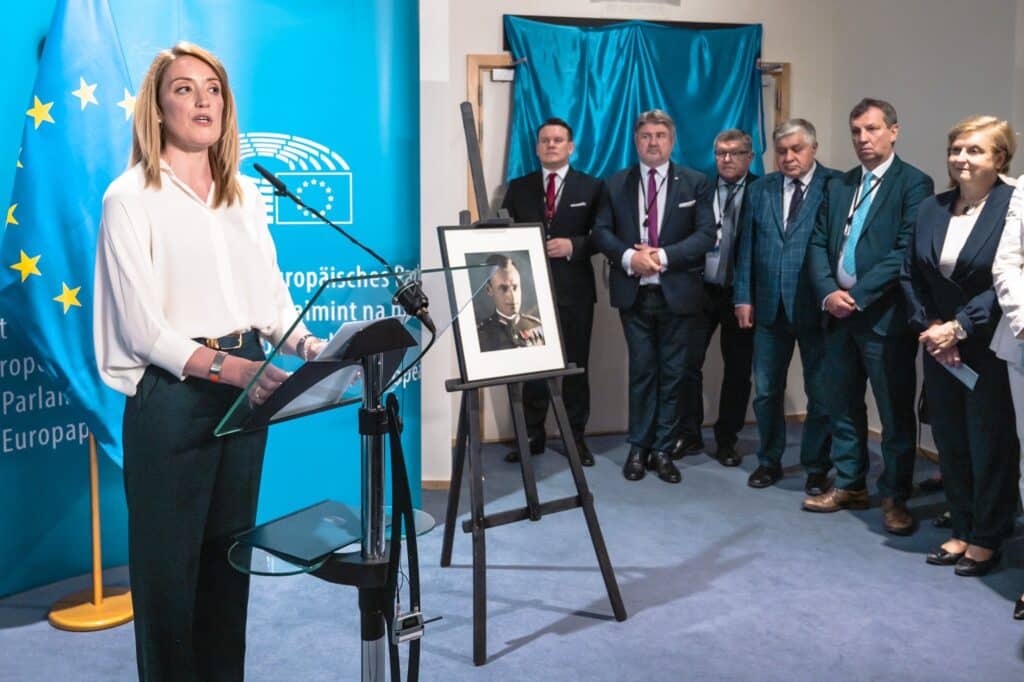
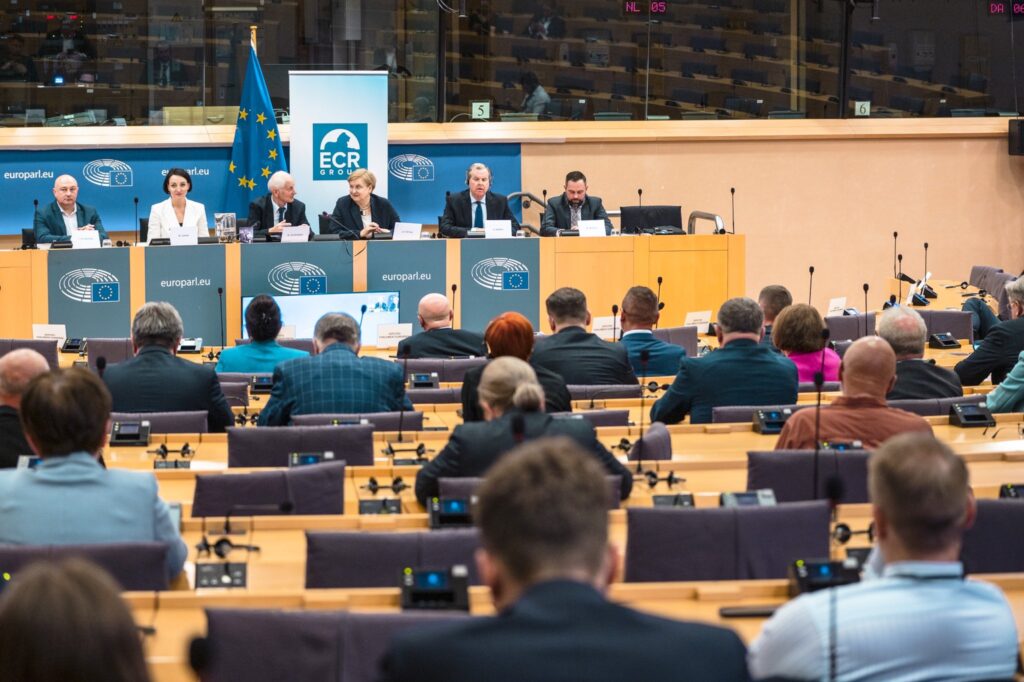
Ryszard Antoni LEGUTKO (ECR, PL), Head of ECR group said that:
It’s very difficult to to talk about piece. At least my language fails me. What he did, his heroism extends goes beyond our imagination. What also exceeds the imagination is the evil he faced. He died. Or rather, he was murdered in defiance of the two most devilish inventions of the 20th century. German National Socialism and. And communism. The Communist who murdered him believed that with his death, the memory of him, all about him would be wiped out forever.
Witold Pilecki was a Polish resistance fighter who volunteered to be imprisoned in Auschwitz during World War II. His mission was to gather intelligence and organize a resistance movement from within the camp. Pilecki’s bravery and sacrifice helped to expose the atrocities of the Holocaust and inspire others to resist Nazi oppression. Learn more about this heroic figure and his legacy.
As part of the ceremony, Marek OSTROWSKI, nephew of Witold PILECKI stressed that:
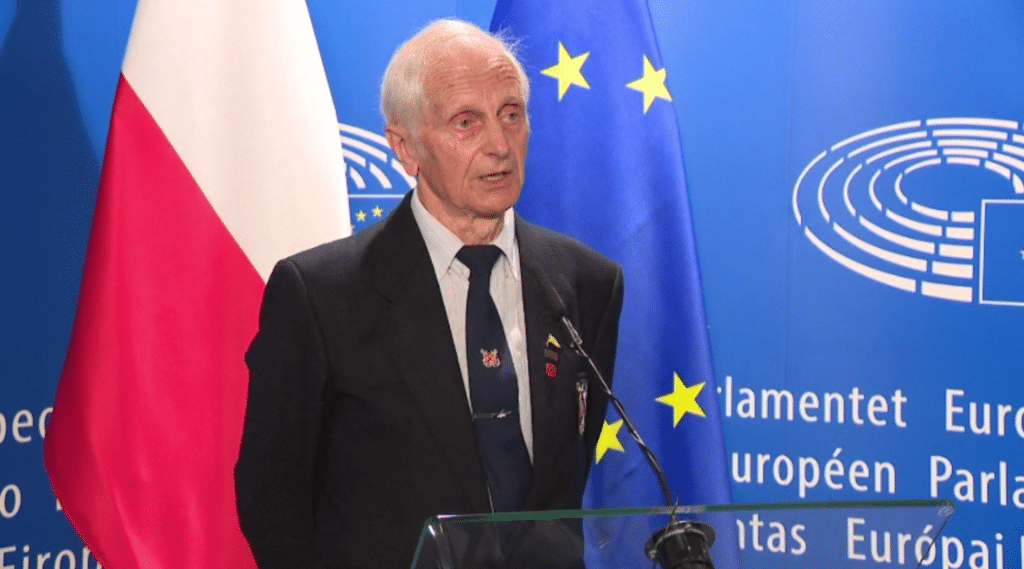
As a little boy, I encountered him during the German occupation. I believe that this was a giant man who, despite such difficult and difficult times, has done so much. Imagine that thanks to his reports, which flowed from Auschwitz and in these reports, the names and names of the greatest gardeners of the German SS men were given. And the BBC reported that via radio, that after the war they would be tried as war criminals, it changed collective responsibility for escaping from Auschwitz.
Early Life and Military Service
Witold Pilecki was born on May 13, 1901, in the town of Olonets in the Russian Empire (now part of Russia). He grew up in a patriotic family and was educated in Poland. In 1918, he joined the Polish military and fought in the Polish-Soviet War. He continued his military service in the interwar period, rising to the rank of captain. When Germany invaded Poland in 1939, Pilecki joined the underground resistance movement and began his mission to infiltrate Auschwitz.
Infiltrating Auschwitz
Witold Pilecki’s most famous mission was his infiltration of Auschwitz, the Nazi concentration camp. In 1940, he volunteered to be arrested and sent to the camp, where he spent the next two and a half years gathering intelligence and organizing a resistance movement. Pilecki’s reports on the atrocities committed at Auschwitz were some of the first to reach the Allies, and his actions helped to expose the horrors of the Holocaust to the world. Despite the danger, Pilecki continued his resistance work until he was discovered and executed by the Nazis in 1948.
Gathering Intelligence and Organizing Resistance
Witold Pilecki’s bravery and dedication to the resistance movement during WWII is truly remarkable. His mission to infiltrate Auschwitz and gather intelligence on the atrocities committed there was a dangerous and selfless act. But Pilecki didn’t stop there. He also organized a resistance movement within the camp, providing hope and support to fellow prisoners. His actions helped to expose the horrors of the Holocaust to the world and inspired others to resist. Pilecki’s legacy as a hero and symbol of resistance continues to inspire people today.
Escape and Continued Resistance
After nearly three years in Auschwitz, Pilecki managed to escape in April 1943. He continued his resistance work, joining the Home Army and fighting in the Warsaw Uprising in 1944. Despite being captured by the Germans and sentenced to death, Pilecki’s legacy lived on. His reports from Auschwitz were used as evidence in the Nuremberg Trials, and his story continues to inspire people around the world to stand up against oppression and fight for what is right.
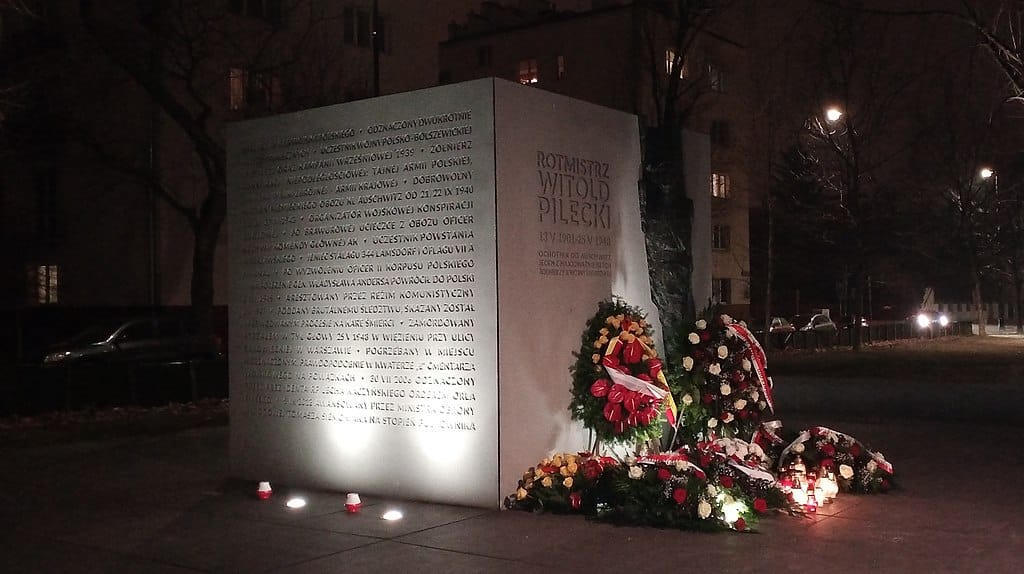
Legacy and Recognition
Witold Pilecki’s legacy as a hero of WWII has been recognized in various ways. In 2006, he was posthumously awarded the Order of the White Eagle, Poland’s highest civilian honour. In 2013, a monument was erected in his honour in Warsaw. Pilecki’s story has also been told in books, documentaries, and films, ensuring that his bravery and sacrifice will never be forgotten. His actions continue to inspire people to stand up against injustice and fight for freedom and human rights. And now, in 31st May 2023, a meeting room of the European Parliament has been given his name.










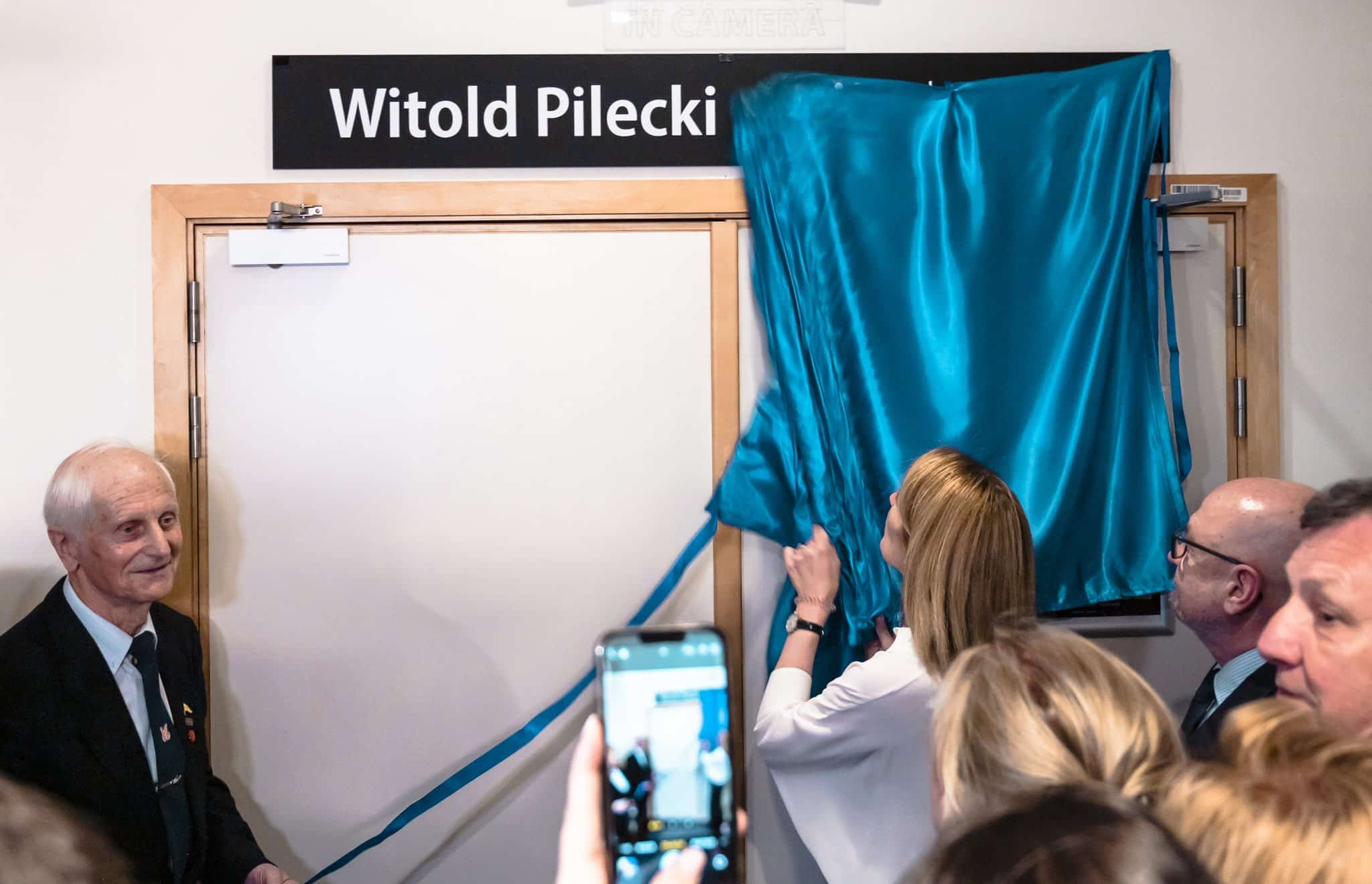










Discussion about this post